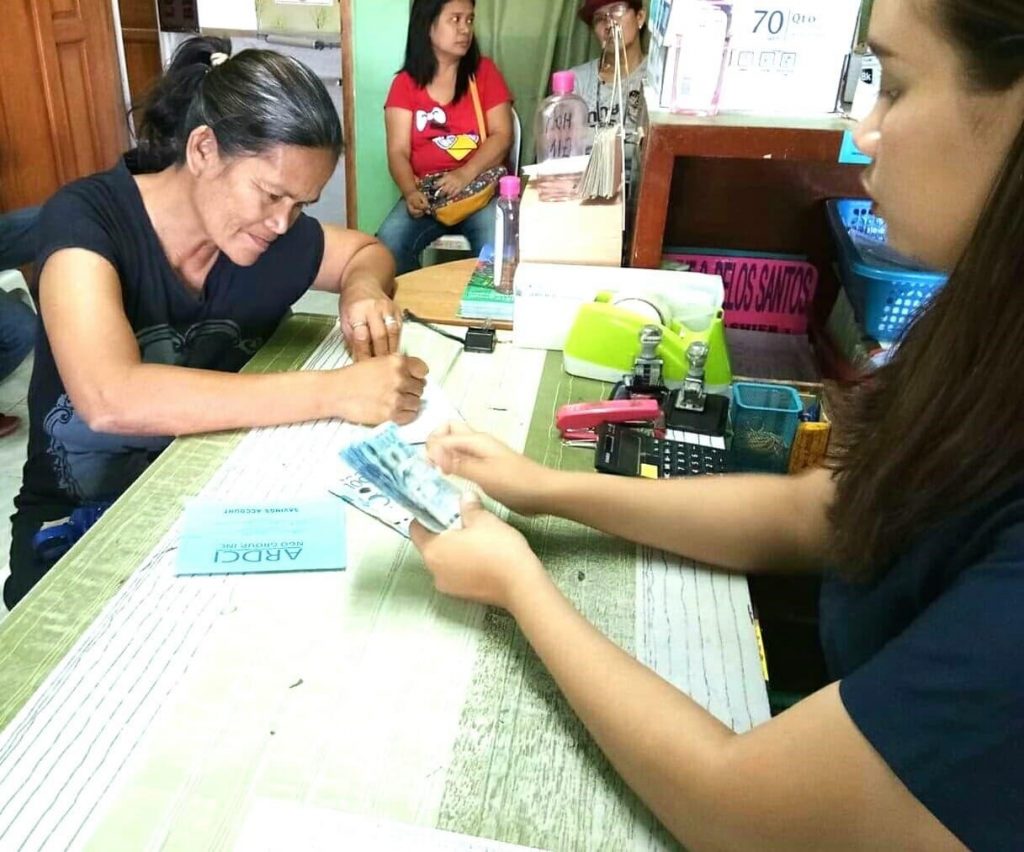ARDCI Microfinance Insurance Program pay P144-M in claims to beneficiaries
Reflecting on the success of its Insurance Program over the last two years, the ARCDI Microfinance, Inc. has paid over P144 million in approved claims to policyholders or their beneficiaries.
This latest winner in ARDCI MFI’s expanding trove of accomplishments stems mainly from its twin plans that provide not only life insurance coverage but also a facility to accumulate funds for payments of other benefits as well as to cover outstanding loan balances in case untimely demise.
Under the Group Comprehensive Benefits Plan are the Group Term Life Insurance Plan (GTLIP), Group Accidental Benefit Rider (GADBR), Group Total and Permanent Disability Rider (GTPDR), Group Accident Medical Reimbursement (GAMERR), Group Hospital Income Rider (GHIR), and Group Terminal Illness Rider (GTIR).
The Basic Life Plan pays the amount of insurance of the insured member in the event of his death during the defined period. Not only that, the family of the deceased member is provided an “instant abuloy” benefit: P5,000.00 for those who have been a member below three years and P10,000.00 for memberships over three years.
On the other hand, in case a contestable claim is denied due to the ineligibility of the principal or insured borrower, the insurer is obligated to pay a fixed “ex gratia” settlement of P10,000.00 to the designated beneficiary, with the amount to be equally shared by ARDCI and PhilLife.

Marilyn Mantes (left) signs documents at ARDCI’s Ligao Branch as the cashier readies the release of death benefits following the demise of her husband Dante
In case of death due to an accident, the Group Accidental Benefit Rider (GADBR) pays out the full amount of insurance but there are some exclusions. These include bodily or mental infirmity, hernia, food poisoning, bacterial infection or disease or sickness of any kind; poison, gas, or fumes whether voluntarily or involuntarily taken: atomic explosions, nuclear fission or radioactive gas; any accident occurring while or because the insured is affected by alcohol or any unprescribed drug; self-destruction or any attempt thereat while sane or insane; participation in any brawl; any violation or attempted violated of law or resistance to arrest; murder or unprovoked assault; or war, strike, riot, civil war, revolution or any warlike operations or while under orders for such operations or restoration of public order.
Under the Group Credit Life Insurance Plan, upon the death of the insured debtor, the Insurer shall pay ARDCI as Creditor the amount of his insurance to the extent of his outstanding loan balance.
If the insured becomes totally and permanently disabled by bodily injury due to the accident and is prevented from working due to disability for a continuous period of at least six months, the Group Total and Permanent Disability Rider (GTPDR) pays out the amount of insurance. However, upon the availability of the benefit, all insurance under the policy with respect to the benefit immediately cease.
Should the member suffer terminal illness, the ARDCI Microfinance, Insurance Program covers him too.
The Group Terminal Illness Rider (GTIR) pays 50% of the amount of insurance in advance under the basic plan, upon diagnosis that the covered member is terminally ill.
However, the benefit under GTIR shall not be payable if the terminal illness was caused directly or indirectly, wholly or partly, by the following exclusions: self-inflicted body injury, while sane or insane, or caused by attempted suicide; the commission or attempted suicide; the commission or attempted commission or attempted of any criminal act; functional disorders of the mind, abuse of drugs or alcohol; atomic explosions or radioactive gas; declared or undeclared strikes, riots or civil strife; or sexually transmitted diseases, AIDS and AIDS-related diseases.
If the insured is hospitalized in a duly registered hospital recommended by a physician, the Group Hospital Income Rider (GHIR) pays a benefit for each day of confinement for up to 365 days.
Excluded from coverage are hospital stays not recommended by a qualified doctor, those outside the country or done prior to the coverage period; routine physical exams, diagnosis or check-up, therapy, and renal dialysis; confinements due to self-inflicted injury, pregnancy-related complications or those caused by venereal diseases, nervous or mental breakdowns or disorders; confinements due to sickness or injury while serving in the military; those caused by murder or unprovoked assault, AIDS or AIDS-related illnesses, or those by reason of cosmetic dental or plastic surgery, except those for the repair of damage caused by accidental bodily injury; confinements involving congenital deformities, alcoholism or drug addiction or allergic reaction to drug, or due to experimental medical or surgical procedures.